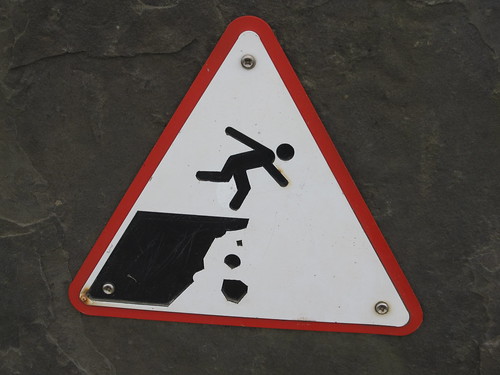 We are so close - and yet so far away, in so many ways - to the next great Revolution.
We are so close - and yet so far away, in so many ways - to the next great Revolution.
Mankind has experienced the Scientific Revolution and the Industrial Revolution. Modern-day science has provided the health and medical communities with a tremendous number of studies, analyses and reviews that now give clinicians a strong evidence-based foundation for the assessment and treatment of musculoskeletal disorders.
We now have all the makings of a Health Revolution. We have all the reasons in the world to have that great clinical epiphany. We are standing on the edge of the cliff ready to jump.
Yet many don’t. And won’t. They will choose to not make the next step.
When push comes to shove, beliefs can be far stronger and more resilient than the evidence.
The signs of the next great Revolution are here.
Example number one: magnetic resonance imaging. There is plenty of evidence to indicate that in the lumbar spine, shoulder, and knee, the vast majority of patients who are asymptomatic will display some degree of structural failure on MRI. But the image itself is not predictive of symptoms. In many musculoskeletal disorders, it should not be the first line of assessment. It is over-utilized and its value and role in clinical reasoning is exaggerated. Yet what happens clinically?
Example number two: palpation. Again, there is plenty of evidence to indicate that palpation as an assessment tool is highly unreliable. Two raters will rarely agree upon what they feel with their hands. With low reliability comes questionable validity. It is over-utilized and its value and role in clinical reasoning is exaggerated. However, what continues to be taught as a primary assessment tool?
We see similar issues with the research concerning the cost of health care (and how to decrease it), passive approaches to care, and a plethora of assessment and treatment “tools” utilized by countless physical therapists, chiropractors, massage therapists, physicians, and anyone willing to lay their magical hands on a patient for a fee.
It is like walking up to the edge of a cliff and looking out over the vista in front of you. You are buoyed by the growing research. You are ready to make the next step forward in your thinking by integrating it into your patient management strategies. You know it will be a challenge, but you are ready to jump. A Health Revolution is right there in front of you. There must be a better way. You know you need to jump, you know there is no reason to stay and yet – you step back from the edge.
You collect research data, evaluate it, find that it tells you something that is perhaps totally counter to your beliefs, and yet you still decide to step back from the conclusions.
It all comes down to thinking:
“A contradiction cannot exist. An atom is itself, and so is the universe; neither can contradict its own identity; nor can a part contradict the whole. No concept man forms is valid unless he integrates it without contradiction into the total sum of his knowledge. To arrive at a contradiction is to confess an error in one’s thinking; to maintain a contradiction is to abdicate one’s mind and to evict oneself from the realm of reality.” (Rand)
These issues are not about evidence. And I wish people would simply own up to it. If it was simply about evidence, we could have a nice, logical discussion over snacks and get this done. But it’s not.
It is about our choices of what to do with the evidence. It is about the defense mechanisms that chime out “well, we really just don’t know” which allows us to rationalize the use of whatever methods we choose. It is the cries of “the art of medicine” instead of “the scientific plausibility of medicine”.
What makes it worse is this: it is acceptable do so.
The academic world could simply say “no more”. The clinical world could simply say “no more”. Yet, neither do. Our professional associations could do so, as could our payers. Nobody wants to step up.
As long as we allow ourselves to maintain contradictions and, as Rand notes, evict ourselves from the realm of reality, then the great Health Revolution – the clinical epiphany - will always be one step away.
Tantalizingly so.
Photo credits: jeffc5000
 "Running Injuries: Etiology And Recovery- Based Treatment" (co-author Bridget Clark, PT) appears in the third edition and fourth editions of "Clinical Orthopaedic Rehabilitation: A Team Approach" by Charles Giangarra, MD and Robert C. Manske, PT.
"Running Injuries: Etiology And Recovery- Based Treatment" (co-author Bridget Clark, PT) appears in the third edition and fourth editions of "Clinical Orthopaedic Rehabilitation: A Team Approach" by Charles Giangarra, MD and Robert C. Manske, PT.
 Allan Besselink, PT, DPT, Ph.D., Dip.MDT has a unique voice in the world of sports, education, and health care. Read more about Allan here.
Allan Besselink, PT, DPT, Ph.D., Dip.MDT has a unique voice in the world of sports, education, and health care. Read more about Allan here.
 Top 5 finalist in three categories: "Best Overall Blog", "Best PT Blog" and "Best Advocacy Blog".
Top 5 finalist in three categories: "Best Overall Blog", "Best PT Blog" and "Best Advocacy Blog".